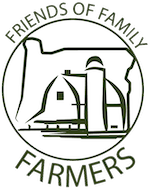Seed Policy Roadmap Describes Opportunities and Threats in the Pacific Northwest
Organic Seed Alliance (OSA) announced the release of a report that details organic seed policy opportunities and threats in the Pacific Northwest. Compiled in collaboration with Oregon-based Friends of Family Farmers, A Seed Policy Roadmap for the Pacific Northwest equips seed advocates with state-level policy resources to support the protection and expansion of organic and non-GMO seed production in the region.
“The COVID-19 pandemic highlighted critical fractures in conventional agriculture supply chains,” says Amy Wong, who co-authored the report on behalf of Friends of Family Farmers. “More than ever, policy makers need to make investments in resilient food systems at the regional level. We believe those investments should begin with seed, the cornerstone of food security.”
The Pacific Northwest continues to see a series of cascading climate and other extreme weather events, making it critical that the region prioritize seed production from a food security as well as economic perspective. The region also has the potential to be a leader in organic and non-GMO seed production, especially vegetables and other specialty crops, due to the region’s ideal climate and environmental conditions. For example, it’s estimated that Brassica vegetable seed crops produced in Washington and Oregon provide up to 50% of the U.S. supply, and up to 25% of the world supply, of seed used to grow these vegetables. Furthermore, organic seed production is urgently needed to support the growing demand for organic food, now a $56 billion industry.
“Policy plays a critical role in ensuring that growers have access to the seed they need and that the integrity of our seed supply is preserved,” says Kiki Hubbard with Organic Seed Alliance, also a co-author. “This roadmap serves as a starting place to help seed advocates and seed growers identify where they can make an impact and where they may be impacted by current policies.”
Seed policy advocates in Oregon have worked tirelessly to protect the quality and genetic integrity of high-value vegetable seed crops threatened by GMO relatives that easily cross-pollinate with organic and other non-GMO varieties and by diseases introduced by large-scale canola production. The roadmap includes these historical initiatives and lessons learned, and strategies for taking full advantage of the market opportunity to grow more organic vegetable seed to meet local demand and beyond. The roadmap covers other policy topics as well, including bills focused on pre-empting local governance of seed and bills that aim to protect farmers’ rights in cases of alleged patent infringement.
The roadmap includes a toolkit with talking points and other resources that seed advocates can use and adapt to their own policy organizing efforts. While focused on the Pacific Northwest, the resource released today can also support advocates in other states who are exploring ways to strengthen their region’s seed system.
“There are several ways that seed advocates can get involved to help execute this roadmap and policy platform,” says Wong, who points to a list of policy organizations in the roadmap in addition to the talking points. “Educating ourselves on the problems and opportunities is the first step – organizing our collective power comes next.”
The full report can be downloaded here.
An interactive map of seed policy initiatives across the U.S. can be downloaded separately here.
This project was made possible thanks to the generous support of the Bullitt Foundation.

